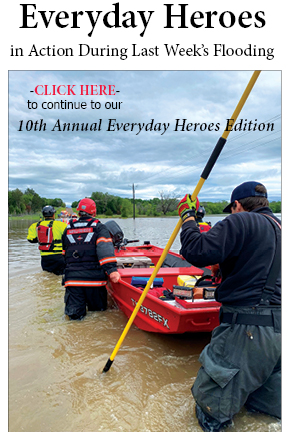Social media and dating apps are great ways to meet new and interesting people for those looking for love, but beware – the people you meet may not be who they appear. Reports to government agencies and Better Business Bureau describe, in heartbreaking detail, the use of romance scams to steal millions of dollars from the public. In 2023, Texas residents reported a median loss of $3,000 to romance scams to BBB Scam Tracker, with total losses in the Lone Star State reaching $1.8 million. Across the U.S., consumers reported more than $14 million lost to these scams last year.
Romance scams are particularly devastating due to the emotional and mental toll they inflict, along with the financial losses. Those targeted often spend weeks, months, or even years talking and building a relationship with an online interest who ultimately turns out to be a fake. In most cases, the financial losses associated with a romance scam occur when the scammer claims an emergency happened and they need money to help handle it. Some common reasons used are hospital bills (for themselves or their children), mortgage payments, or travel costs to visit. However, romance scams are also frequently used to establish trust that scammers can leverage in other costly ways. Some of these include:
- Directing targets to an investment or cryptocurrency opportunity and encouraging them to participate. This often leads to a “pig butchering” scam.
- Extorting victims by claiming previous video chats were recorded or that compromising photos will be shared with friends and family unless a payment is made.
- Asking for assistance with other financial hurdles that need to be handled before a ‘happily ever after’ such as inheritance or back-owed taxes, divorce lawyers, moving costs, etc.
- In a twist, some romance scammers position themselves as a financial benefactor and provide their target with a fraudulent payment under the direction they should use some of the money to pay someone else, who is also part of the scheme.
If money is provided once for any of these reasons, it is only a matter of time before another request comes through. Victims who lose the most money to these scams do so over time, often years, through multiple requests. Scammers frequently claim they work overseas in the oil and gas industry, military, or nonprofit organizations, enabling them to go long periods with little contact. Scammers specifically choose these professions because they often provide a reasonable excuse for why it is difficult or impossible for them to talk over the phone or video call.
BBB provides the following tips to help avoid romance scams:
Be cautious of immediate confessions of love. For most people, falling in love takes time and shared experiences. Even if reciprocated, quick confessions of adoration and love should be treated with caution, especially before meeting in person or participating in a digital date. Con artists are well-versed in making themselves appear to be what they are not, including using language that may seem to be genuine.
Never wire money to online interests. No matter how much the person claims they need the money or what will happen if they do not have it, never transfer funds to online interests through a wire service, bank transfer or gift card. Scammers know that these payment methods are fast, anonymous, and almost impossible to reverse.
Verify the authenticity of photos. A common tactic of scammers is to steal photos online of either people they claim to be or of locations where they claim to live. Use reverse image search to see if the photo is publicly available or of another person. Scammers are proficient in editing software and may use a standard picture of a landmark with a picture of themselves edited in. Look for the hallmarks of edited photos, such as signs of warping, an interrupted background pattern or missing shadows.
Do research, ask questions. Spend time researching the area they claim to live in for popular landmarks or attractions. Once you’ve compiled a list of places they are likely to know about if they live in the area, ask pointed questions about them and their opinions. Ask about some of their favorite places to eat, socialize or visit in the area and verify those locations exist. Ask about their employment – if they work on an oil rig, ask what company owns it or what organization they are a doctor for. You can verify some of this information online, but these questions may also expose a scammer if they struggle to answer them easily.
For more information about how to identify and avoid romance scams, visit BBB.org/Romance.
If you have been a romance scam victim, report it to BBB Scam Tracker and the FTC. The information you provide may prevent another person from falling victim.
ABOUT BBB: The Better Business Bureau has empowered people to find businesses, brands and charities they can trust for over 110 years. In 2022, people turned to BBB more than 250 million times for BBB Business Profiles on more than 5.3 million businesses and Charity Reports on about 12,000 charities, all available for free at BBB.org. Local, independent BBBs can be found across the United States and Canada, including BBB serving the Heart of Texas which was founded in 1950 and serves 105 counties across Texas.




